Indigenous Governance Database
Honoring Nations Reports
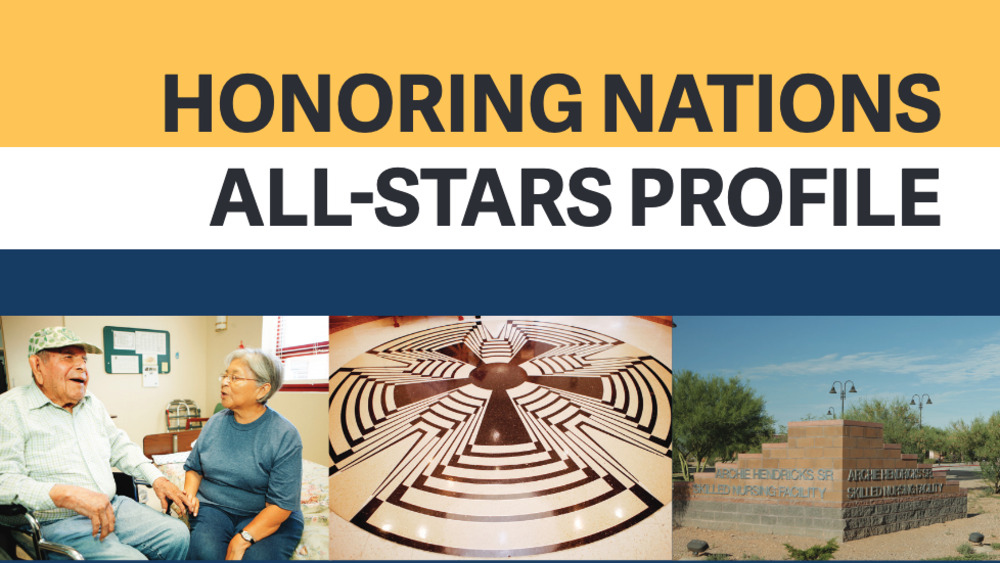
Honoring Nations All-Stars Profile: Tohono O’odham Nursing Care Authority
For many years, due to the Tohono O’odham Nation’s location in the Sonoran Desert of Arizona and the sparse population, Nation members did not have ac-cess to reservation-based long-term or post-hospital care services. This was particularly true for O’odham elders. Elders admitted to the Sells Area…
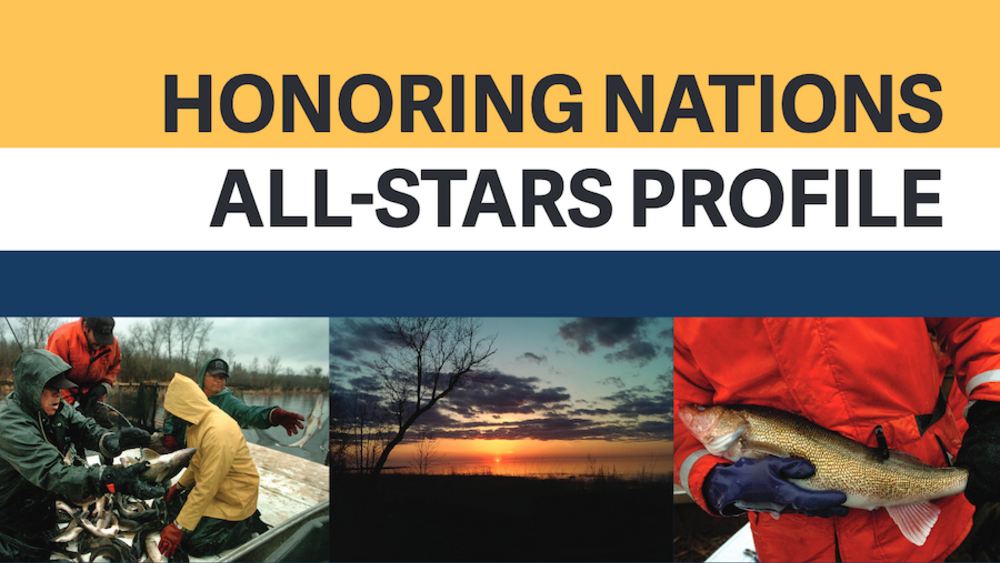
Honoring Nations All-Stars Profile: The Red Lake Walleye Recovery Program
In 1997, the members of the Red Lake Fisheries Association (RLFA), a cooperative established by com-mercial fishermen from the Red Lake Nation,1 voted to discontinue all commercial gillnet fishing on Red Lake for the upcoming season. An overwhelming majority of the RLFA’s members supported the…
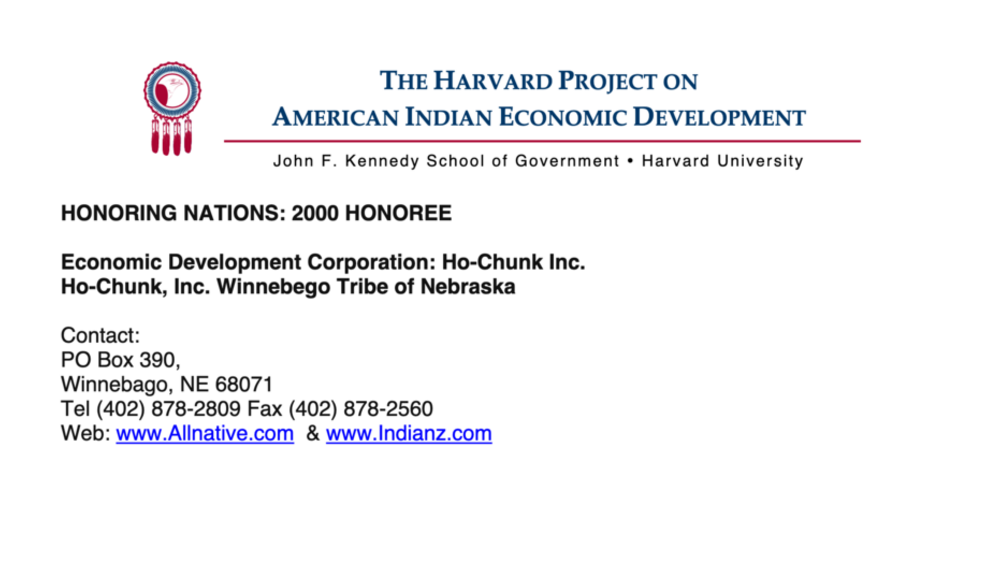
Economic Development Corporation: Ho-Chunk, Inc. Winnebego Tribe of Nebraska
Chartered under the laws of the Winnebago Tribe and wholly owned by the Tribe, Ho-Chunk, Inc. was launched in 1994 to diversify the Tribe’s business interests while maintaining a separation between business and tribal government. The general purpose company promotes economic self-sufficiency and…
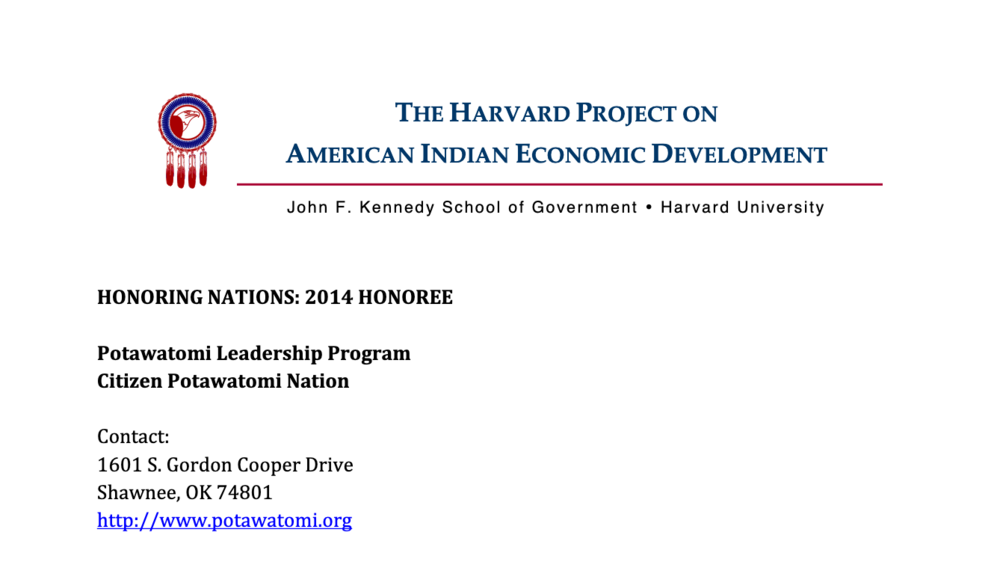
Potawatomi Leadership Program
Proud of the increasing number of citizens pursuing college degrees, the Citizen Potawatomi Nation (CPN) leaders became concerned that their talented students were not getting enough education in what it means to be Citizen Potawatomi. To nurture the nations’ future political leadership, the tribe…
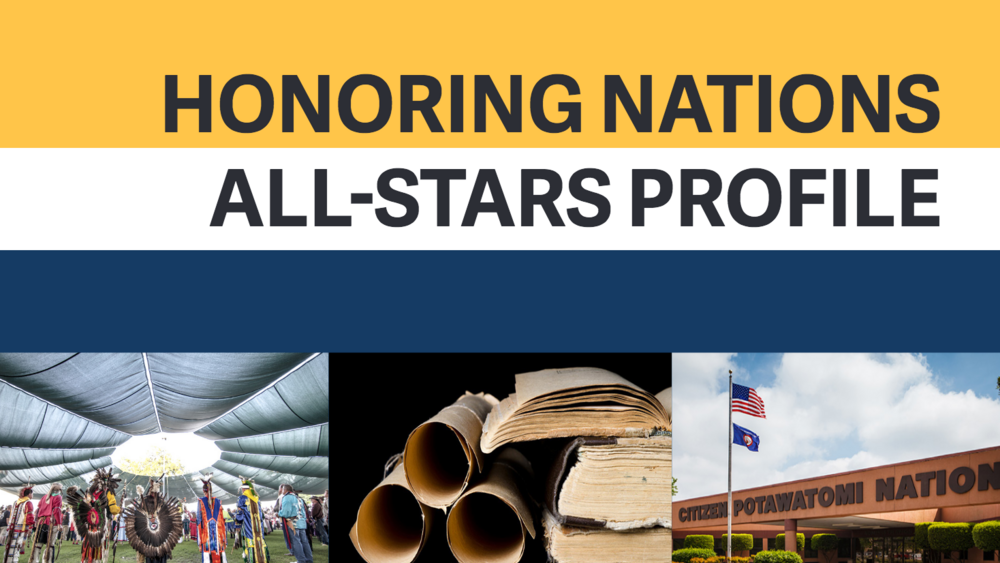
Honoring Nations All-Stars Profile: Constitutional Reform Citizen Potawatomi Nation
Forced relocations, loss of lands, and the economic necessity of moving away from home and community are common histories in Indian Country. Yet, despite these tragic circumstances, tribes continue to assert their sovereignty in order to improve the lives of their people. One of these remarkable…
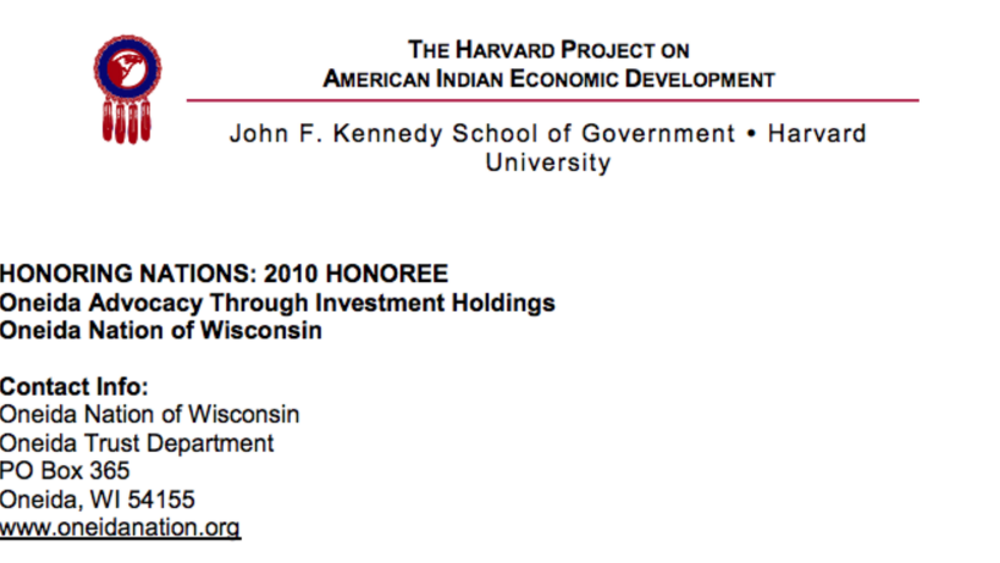
Oneida Advocacy Through Investment Holdings
Thirty years ago, most Native nations in the U.S. had few financial resources available for investment. With the passage of the Indian Self-Determination and Education Assistance Act (Public Law 93-638) in 1975, many tribes began to reclaim the governance of their nations – and with such assertions…
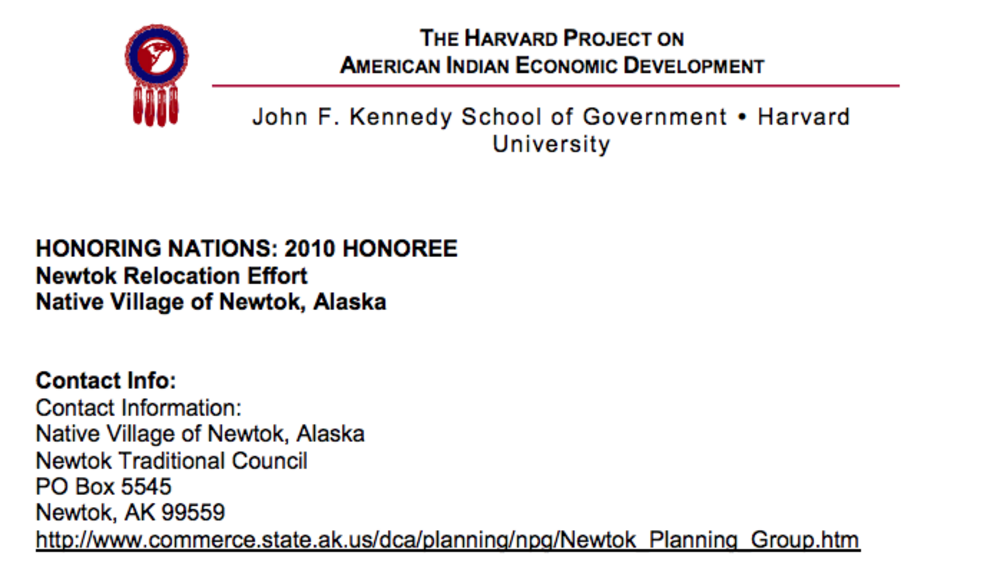
Newtok Relocation Effort
Scientists and politicians spend hours debating the facts of climate change, but in many places damaging changes to the local environment are already a reality. In the past decade, more and more human settlements have been threatened by catastrophic flooding, wildfires, or drought caused by…
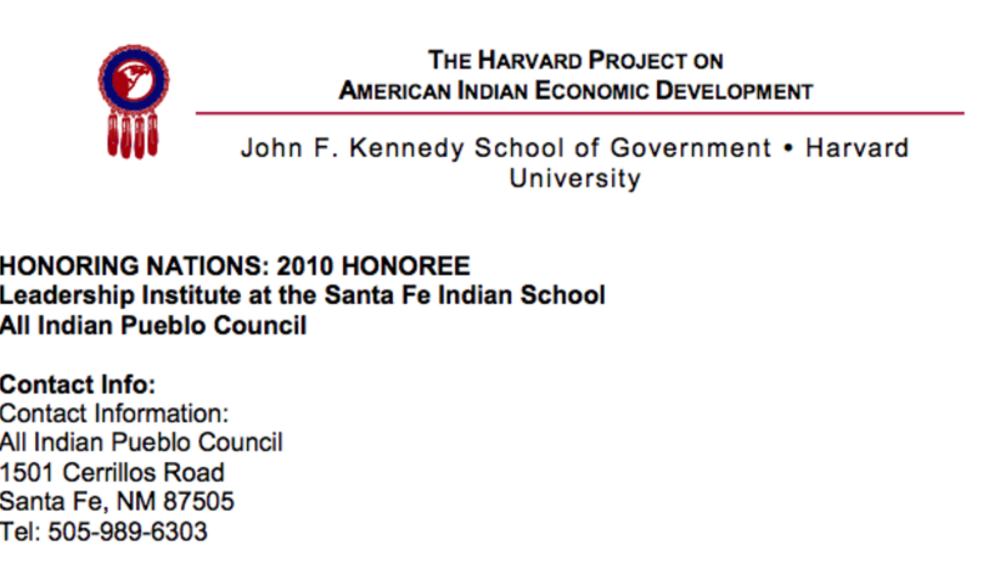
Leadership Institute at the Santa Fe Indian School
Founded in 1997, the Leadership Institute at the Santa Fe Indian School aims to create a dynamic learning environment in which community members not only learn and teach, but are able to actively contribute to the success of their nations. Four themes guide the Institute’s work: leadership,…
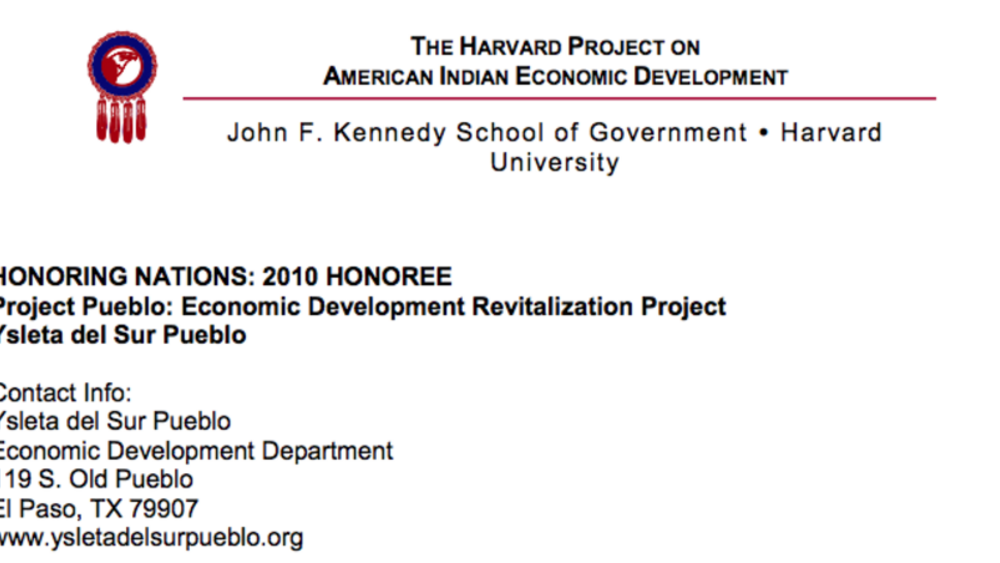
Project Pueblo: Economic Development Revitalization Project
A strong economy is one of the foundations of a healthy community. Native nations use business profits and tax revenues to invest in areas such as health, education, culture, and public safety programs to meet the needs of tribal citizens. At the Ysleta del Sur Pueblo, a sudden economic decline in…
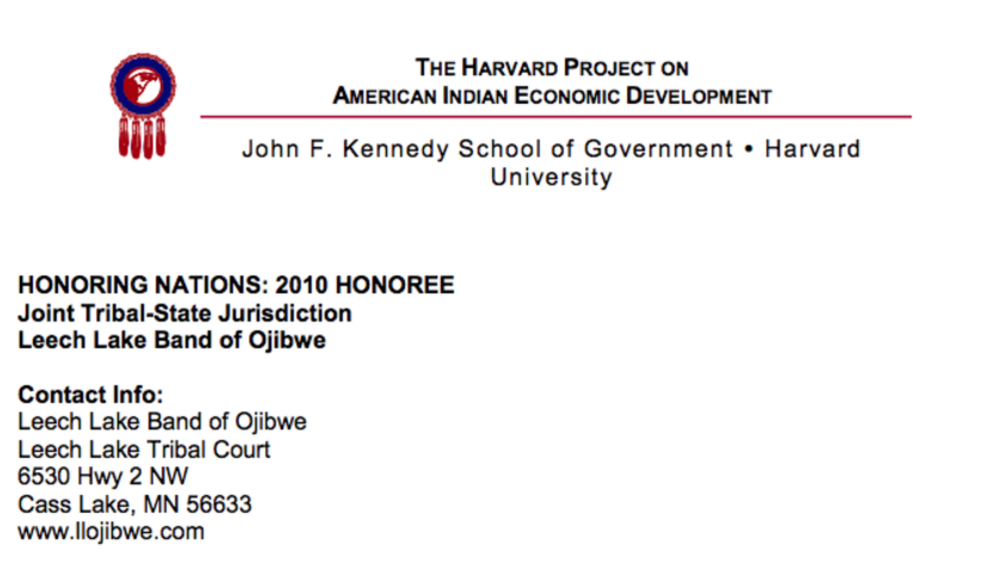
Leech Lake Joint Tribal-State Jurisdiction
Across Indian Country tribes are strengthening and better defining their governments in order to meet the unique needs of their communities. As Native nations work to expand their sovereign powers, tribal justice departments can play a critical role in achieving those goals. In the early 2000s, the…
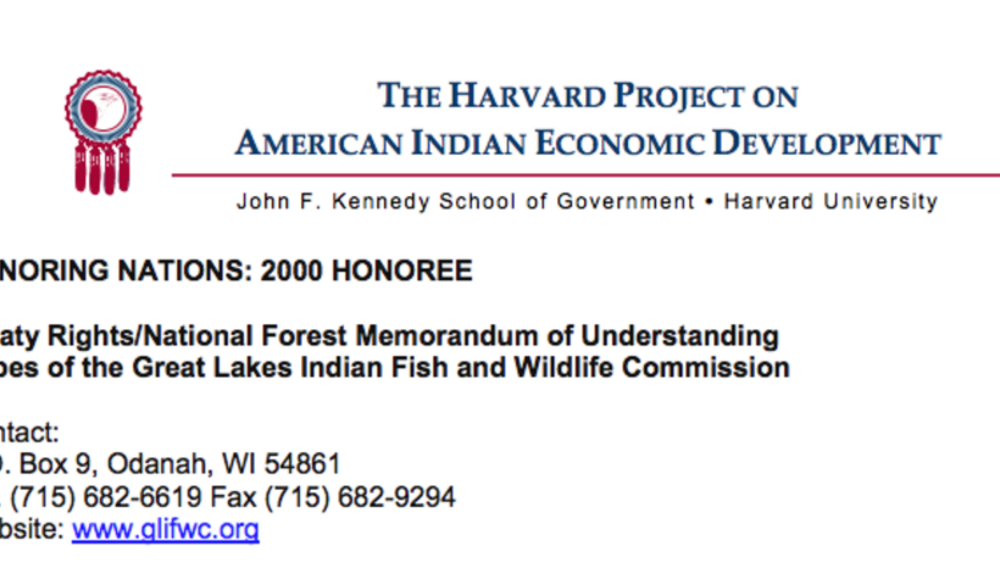
Treaty Rights/National Forest Memorandum of Understanding, Tribes of the Great Lakes Indian Fish and Wildlife Commission
The Great Lakes Indian Fish and Wildlife Commission, a tribally chartered intertribal organization, negotiated a memorandum of understanding (MOU) with the U.S. Forest Service that recognizes and implements treaty guaranteed hunting, fishing and gathering rights under tribal regulations and…
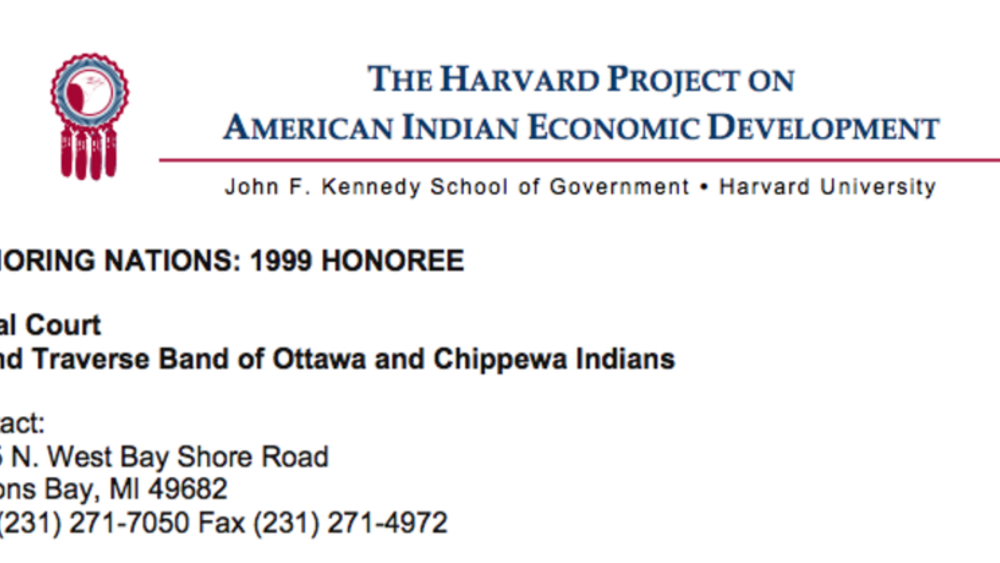
Grand Traverse Band Tribal Court
Constitutionally separated from the political influences of government, the Tribal Court hears more than 500 cases per year, and utilizes "peacemaking" to mediate in cases in which dispute resolution is preferred to an adversarial approach. The Court adjudicates on such issues as child abuse,…
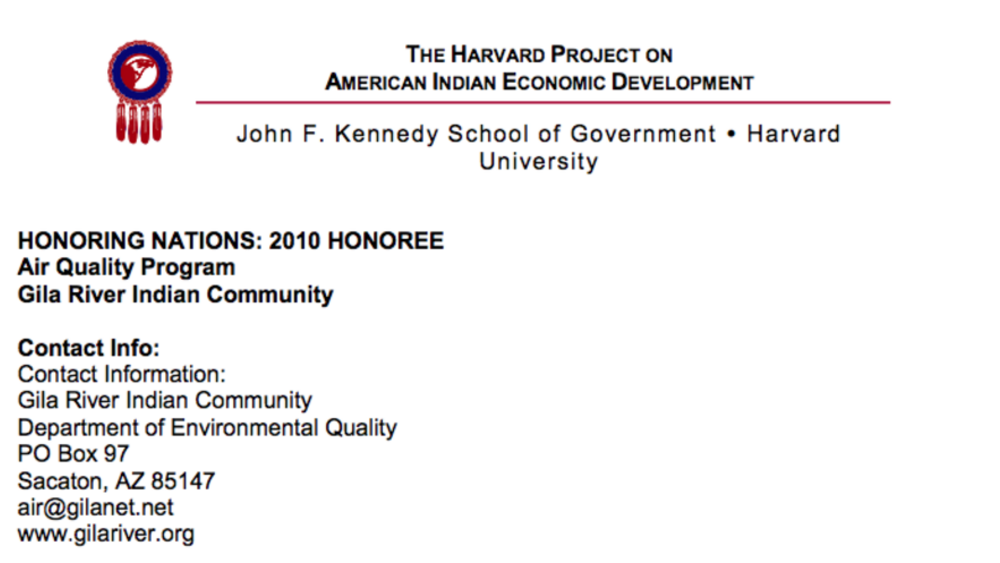
Gila River Indian Community Air Quality Program
In recent years, tribal governments in the United States have passed sophisticated laws and regulations to manage social and economic development in their communities. Although air quality is an important aspect of both economic growth and human health, very few Native nations have successfully…
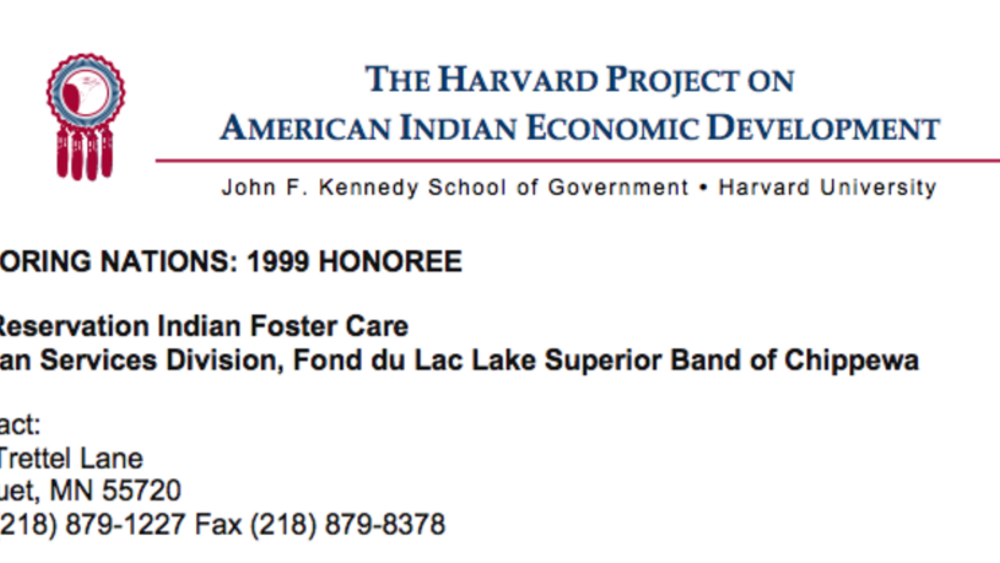
Fond du Lac Off-Reservation Indian Foster Care
By creatively reacting to state laws regarding foster home licensing, the Band established a foster care agency that dramatically reduced the number of Indian children in non-Indian foster care while simultaneously increasing the number of Indian children in Indian foster care. The agency has…
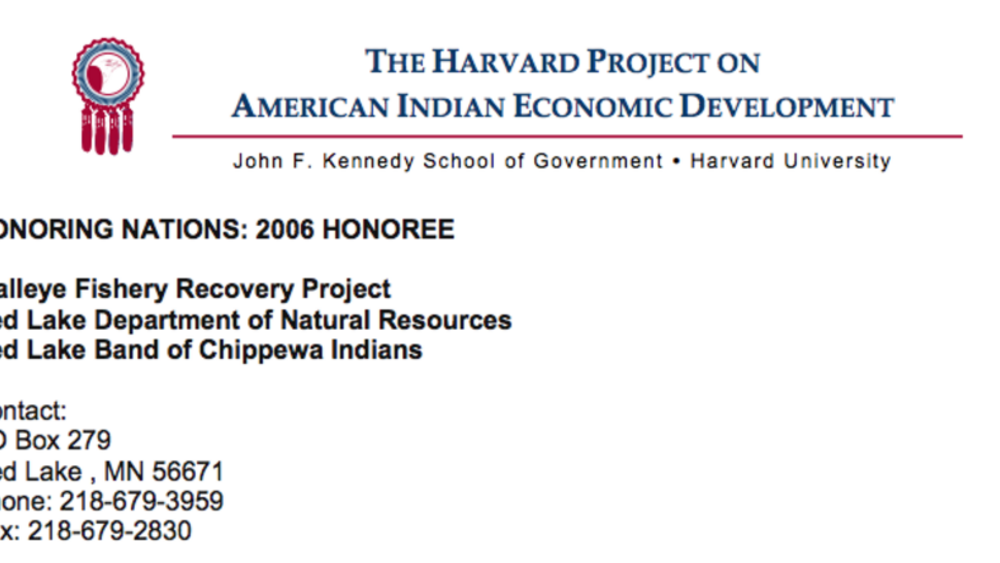
Red Lake Walleye Recovery Project
Clearly demonstrating that tribal nations not only have the ability to make large scale achievements in resource conservation, but that they can do so with unprecedented success, the Red Lake Walleye Fishery Recovery Project has brought the walleye fish population back from virtual extinction to an…
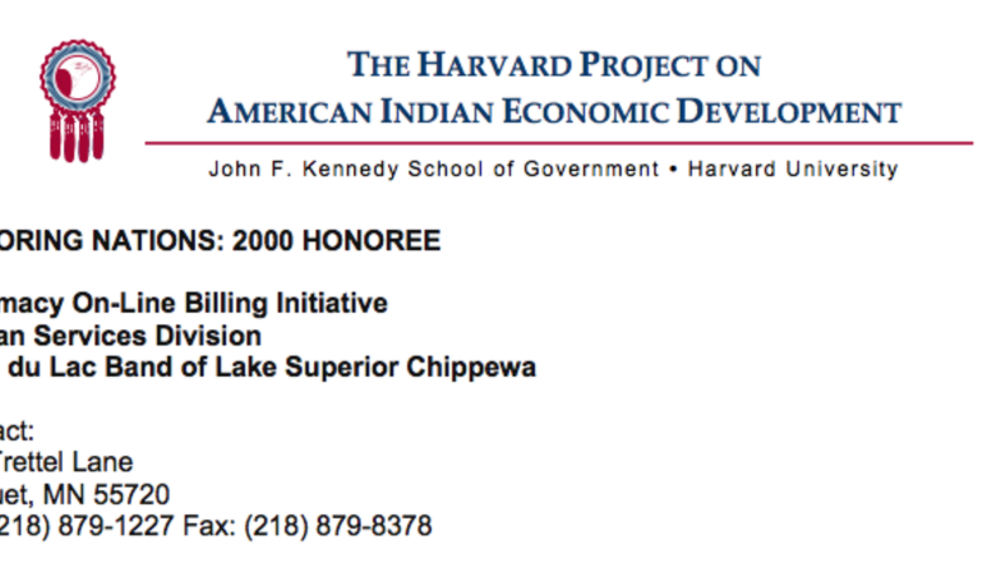
Fond du Lac's Pharmacy On-Line Billing Initiative
In 1995, faced with rising pharmaceutical costs, limited Indian Health Service (IHS) funds, and an inability to bill and collect from third party insurers, the Human Services Division contracted with a private sector firm to design and implement a computerized pharmacy billing system. The first of…
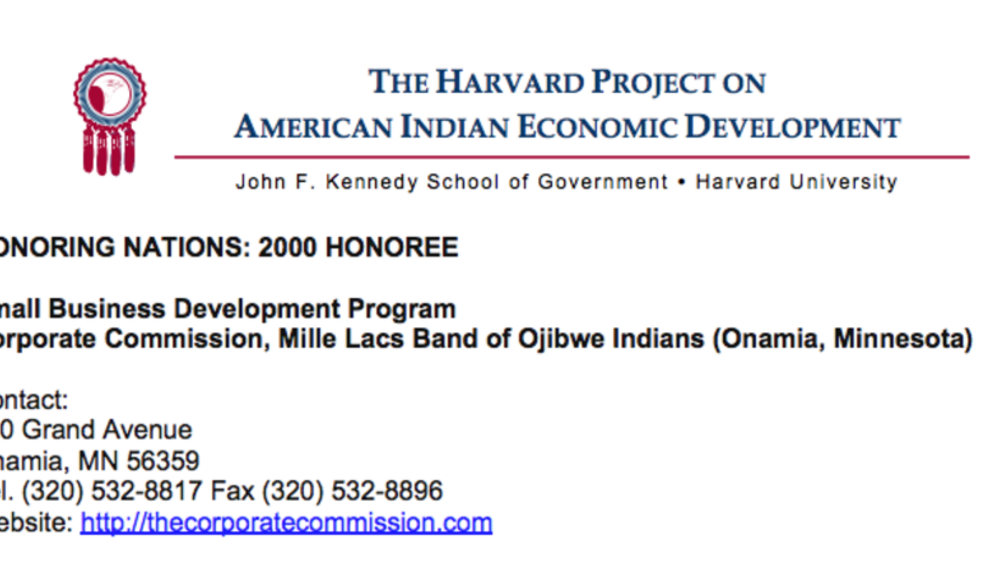
Mille Lacs' Small Business Development Program
The Small Business Development Program assists Band members in developing the private sector economy by providing low-interest loans up to $75,000 to businesses that are at least 60 percent owned and operated by Band members located on or near the Reservation. The Program offers both "micro" loans…
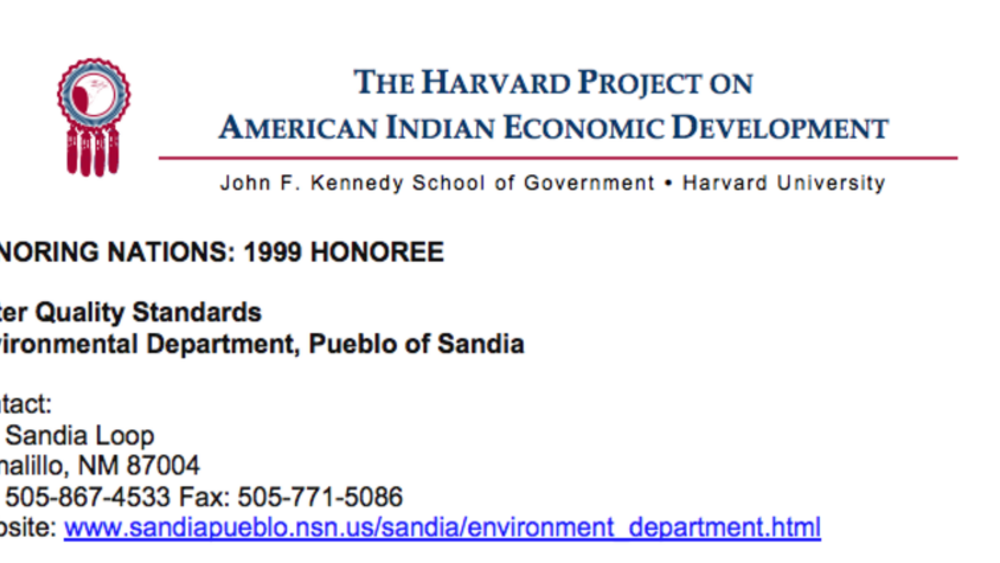
Water Quality Standards (Sandia)
Responding to the severe contamination of the Rio Grande River that threatens human health and ceremonial uses of the water, the Pueblo was awarded "treatment as state" status in 1990. Subsequently, the Pueblo developed and implemented US EPA approved water quality standards that give it control…
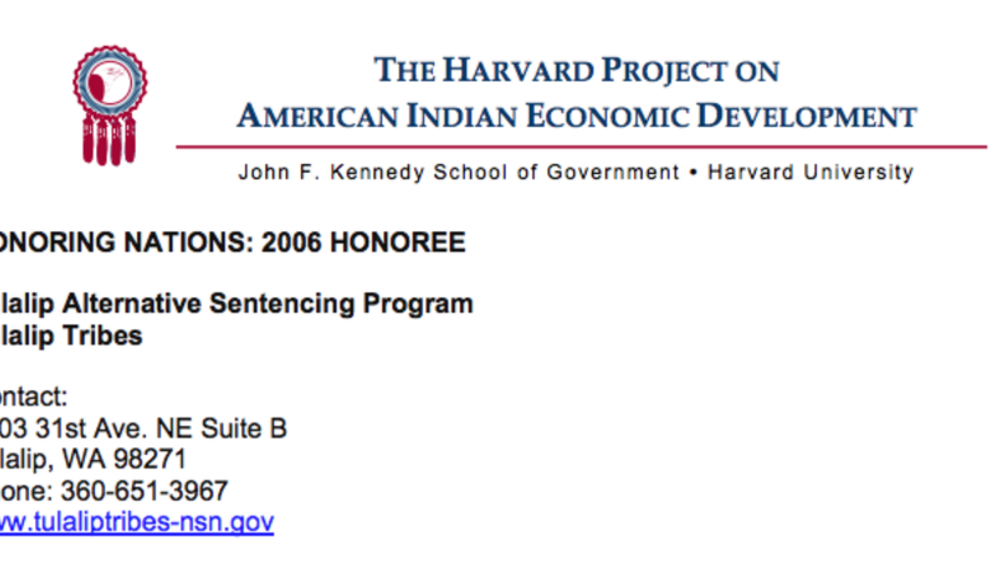
Tulalip Alternative Sentencing Program
Born out of a need to create a judicial system that Tulalip citizens can trust and that also helps offenders to recover rather than just "throwing them away," the Tulalip Tribal Court Alternative Sentencing Program supports efforts to establish a crime free community. Focusing on the mental,…
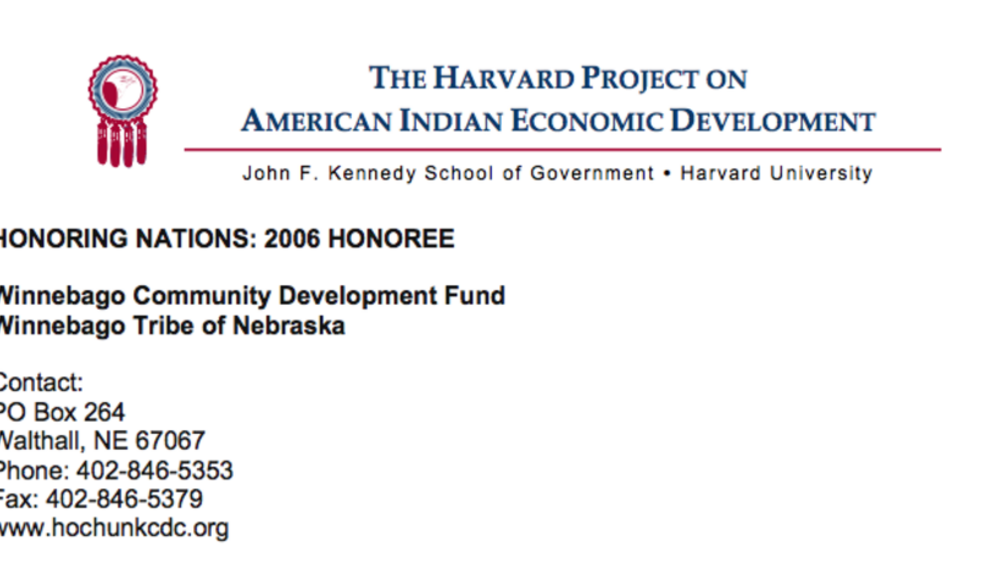
Winnebago Community Development Fund
Establishing a framework for community development based on the goals of the government and its citizens, the Winnebago CDC Fund builds toward long-term development by matching funds for grants, building community projects, supplementing community infrastructure, increasing educational…
